Gaming is fun, but it also shapes your brain and habits. With nearly 3 billion people playing video games, the effects matter. This guide compares real benefits and real risks so you can manage screen time with confidence.
You will see how gaming can help cognitive function, decision speed, and friendships. You will also learn about gaming disorder, video game addiction, and mental health issues that can arise with overuse.
Key Takeaways
Roughly 3 billion players enjoy gains in cognitive function, faster choices, and better hand-to-eye coordination, based on research from NIH and Science Alert.
Regular play can spark creativity, boost social interaction through cooperative modes, and build problem-solving skills, as shown in academic studies.
Risks include video game addiction, aggressive behavior in some players, and weaker focus or school performance, according to APA summaries.
Loot boxes and other microtransactions can act like gambling; early exposure links to later compulsive spending or gambling issues in some users.
The World Health Organization lists gaming disorder, tied to anxiety, depression, poor sleep, and less real-world engagement among some youth.
Table of Contents
Benefits of Gaming
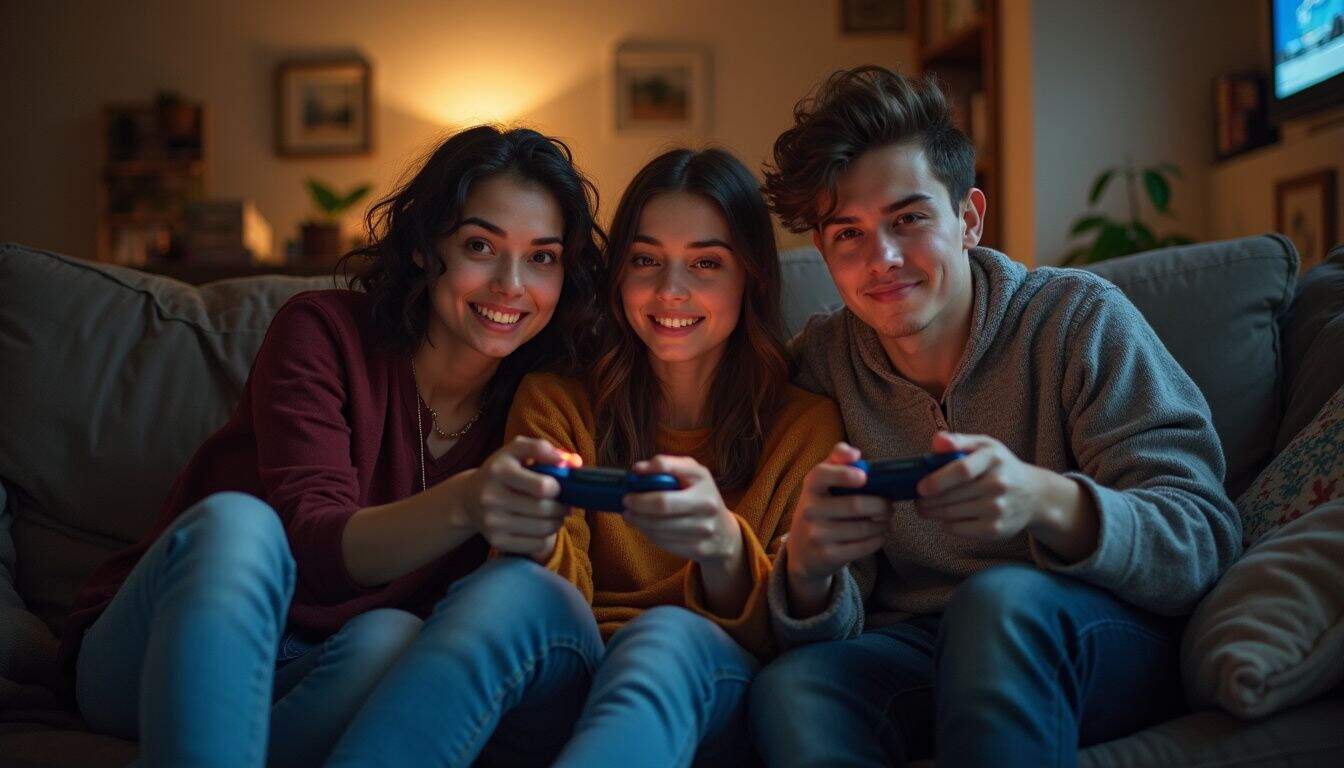
Many players show sharper thinking and quicker processing after steady play. Multiplayer video games also build teamwork and friendships through shared goals.
How does gaming improve cognitive skills?

Fast games can lift cognitive function in clear ways. A 2018 study with 170 people found gamers scored higher on processing speed and visuospatial skills. Visuospatial skills are the ability to understand space, shapes, and movement.
NIH work suggests kids who game may improve overall thinking. Science Alert notes players often show more gray matter and stronger brain connections than non-gamers. Those changes support memory, attention, logical reasoning, and even math ability.
Consider Alex, a data analyst who unwinds with an online casino aggregator. It felt like pure fun at first. But comparing odds and bonus terms turned into a real mental workout, full of pattern checks and risk math.
After making split-second calls in complex card games online, Alex said, I felt sharper handling real problems under pressure.
These gains in executive function, the brain’s control center for planning and focus, can support better performance at school and work.
In what ways does gaming enhance problem-solving abilities?
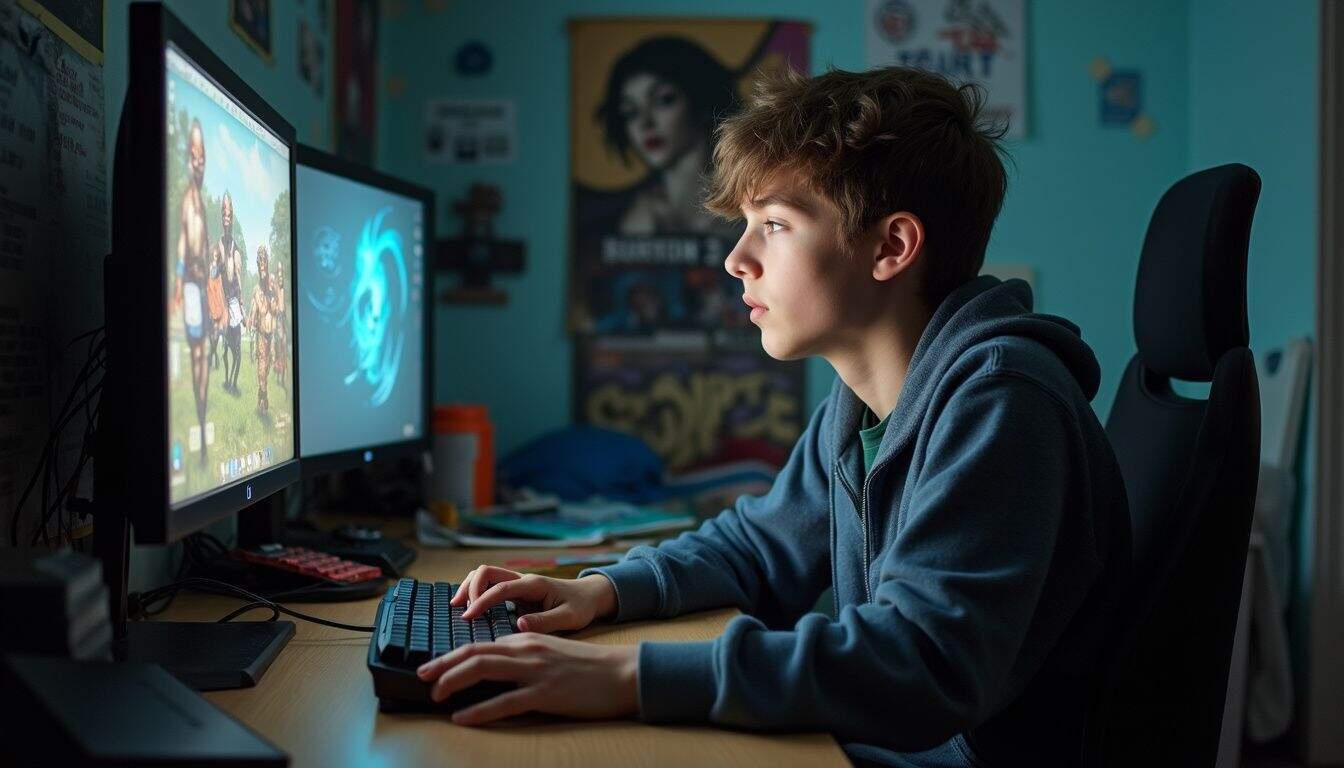
Shooter, strategy, and puzzle games push you to analyze fast and pick smart moves. Many titles ask you to break codes, plan routes, or craft unique tactics. That cycle trains your brain to test ideas and learn from failure.
A Stanford meta-study reports that well-designed games build coping tools for real life. Levels scale up in difficulty, so you adapt plans on the fly.
The Entertainment Software Rating Board, or ESRB, notes that critical choices under pressure can translate into better decision-making skills off-screen. Regular play links to stronger logic, more flexible thinking, and quicker responses to new challenges.
How does gaming improve hand-to-eye coordination?
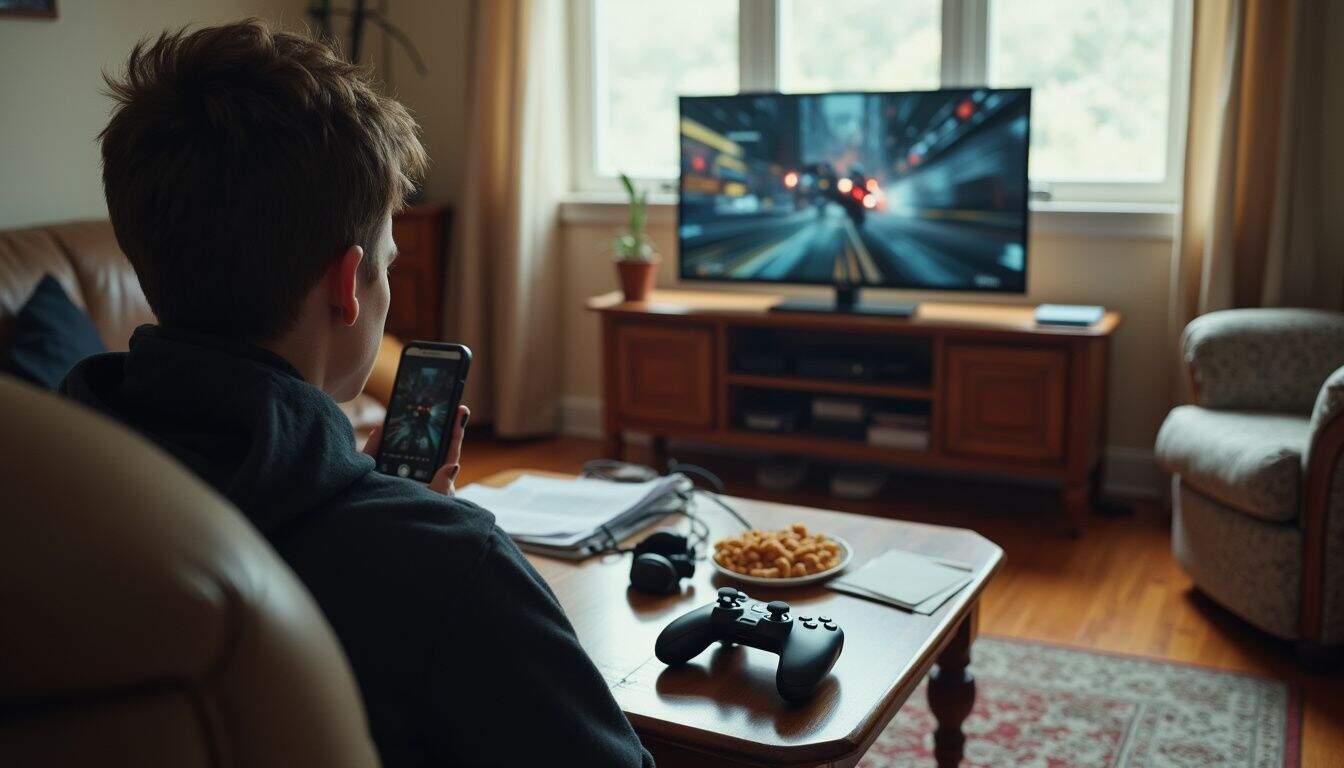
Hand-to-eye coordination means matching what you see with exact hand movements. Action games demand rapid visual processing and split-second input. That pairing improves timing, aim, and accuracy.
One study found that trainees in minimally invasive surgery, often called laparoscopic surgery, performed tasks faster with fewer errors if they played games. Another study comparing gamers and non-gamers showed stronger eye-hand motor skills in the gamer group.
Action titles also train peripheral vision, the ability to notice things at the edges of your view. Gamers often filter distractions better, which supports attention and reaction speed in sports, driving, and other real tasks.
Can gaming help with faster and more accurate decision-making?
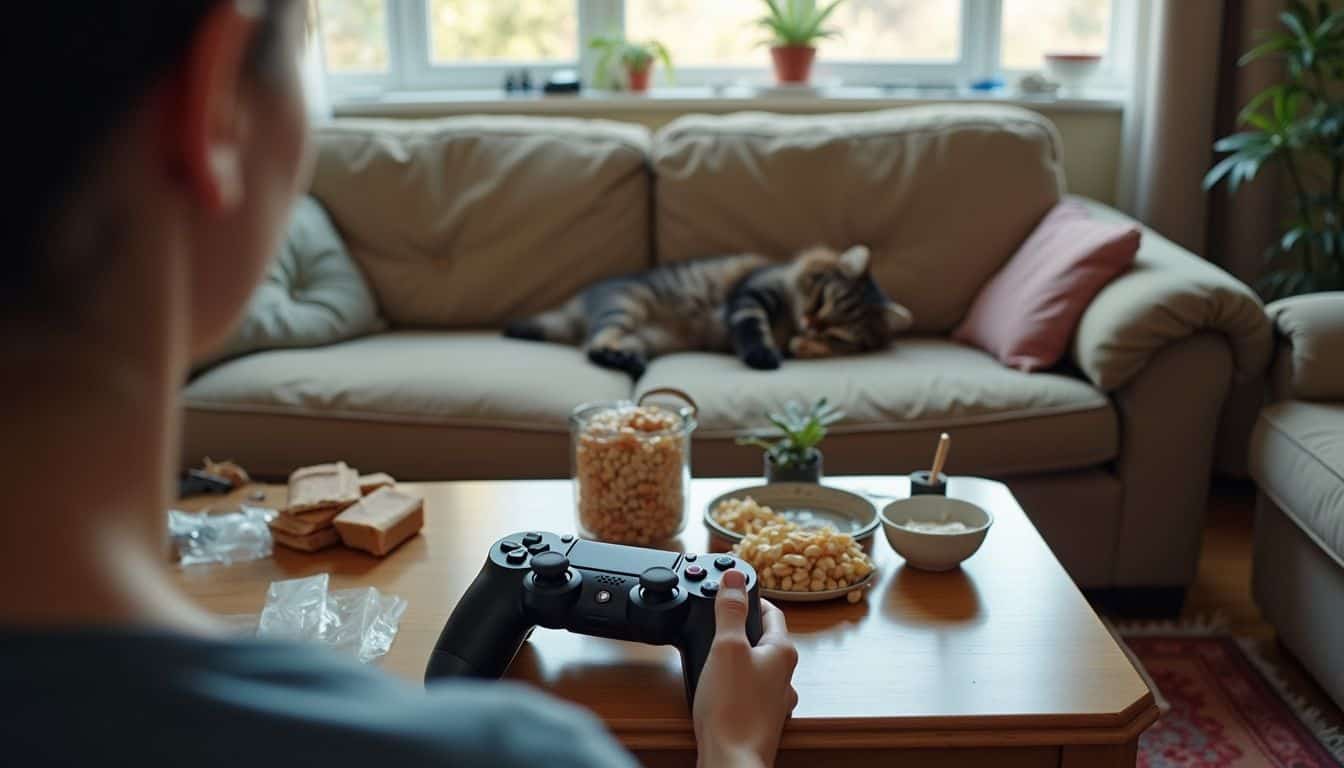
Fast-paced games force quick analysis and action. Players read the situation, spot patterns, and commit to a move in seconds. That practice can carry into daily life, where speed and accuracy often matter.
The American Academy of Pediatrics notes enhanced cognitive functions linked to play, which support sharper decision-making skills. In medical reviews, surgeons who game often handle laparoscopic tasks faster with fewer mistakes.
Video game play is associated with improved tasks involving attention and decision-making, notes research published on apa.org.
How does gaming improve attention to detail?

Games reward noticing small changes, quick cues, and hidden clues. First-person titles often require instant responses to tiny visual signals. Over time, your brain gets faster at spotting patterns and surprise threats.
Research ties gaming to better processing speed and reasoning. The skill helps beyond games. Coders catch typos sooner, and surgeons depend on precision for safe outcomes.
Follow healthy screen time habits, as advised by the American Academy of Pediatrics, to keep focus gains while protecting your eyes and sleep.
How does gaming encourage social interaction and teamwork?
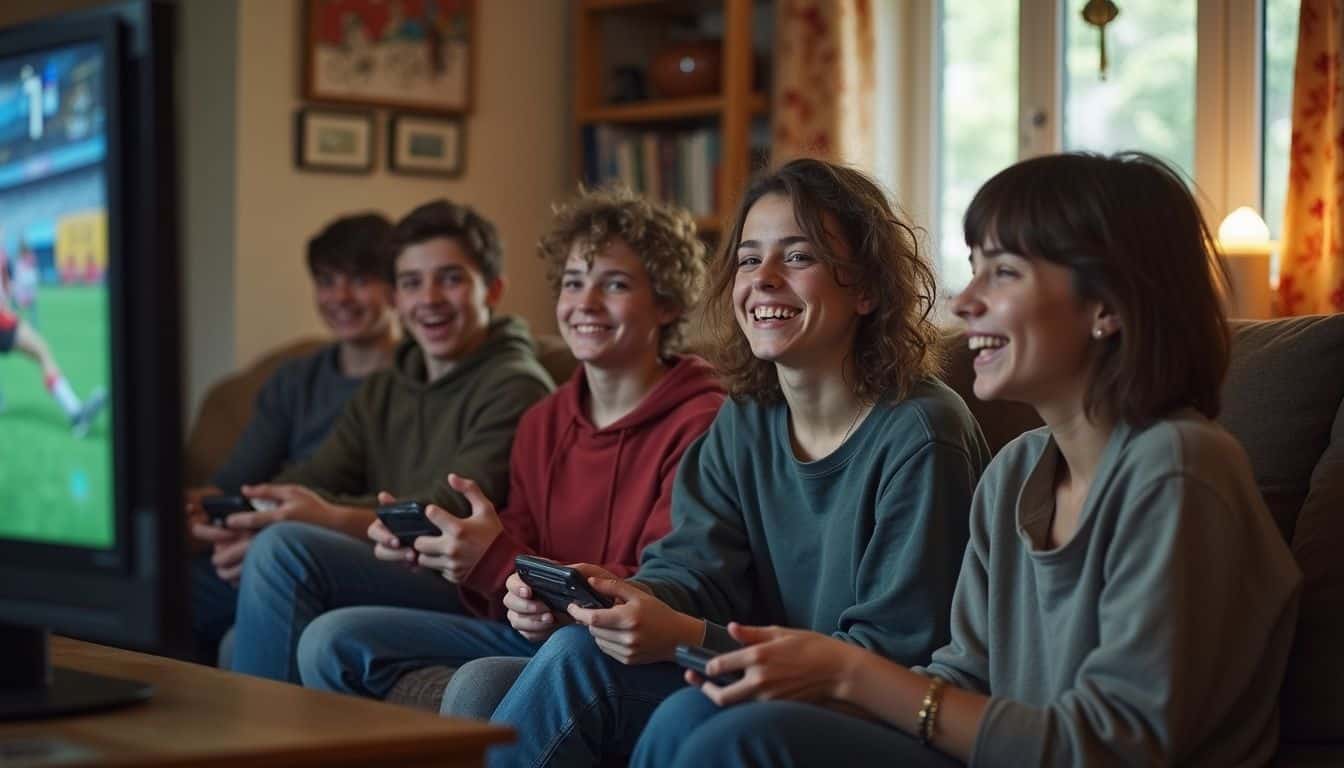
Online modes push squads to plan, communicate, and adapt together. During lockdowns, social gaming helped many people stay connected and feel less alone.
Cooperative gameplay links to more prosocial behavior in studies. Players often act more helpful after working as a team. Platforms like Discord and Xbox Live connect people across borders through shared wins and losses.
These bonds can be real and lasting. That is a big reason many keep logging in with friends week after week.
In what ways does gaming promote creativity and exploration?

Open-ended games invite you to build, test, and tweak new ideas. Sandbox titles like Minecraft let players design worlds, machines, and mods. That free play grows creative thinking and curiosity.
Research ties game time to higher creativity scores in kids’ art and writing. Games also boost executive function and brain plasticity, the brain’s ability to change with practice. Curiosity gets rewarded, so you keep exploring.
Drawbacks of Gaming
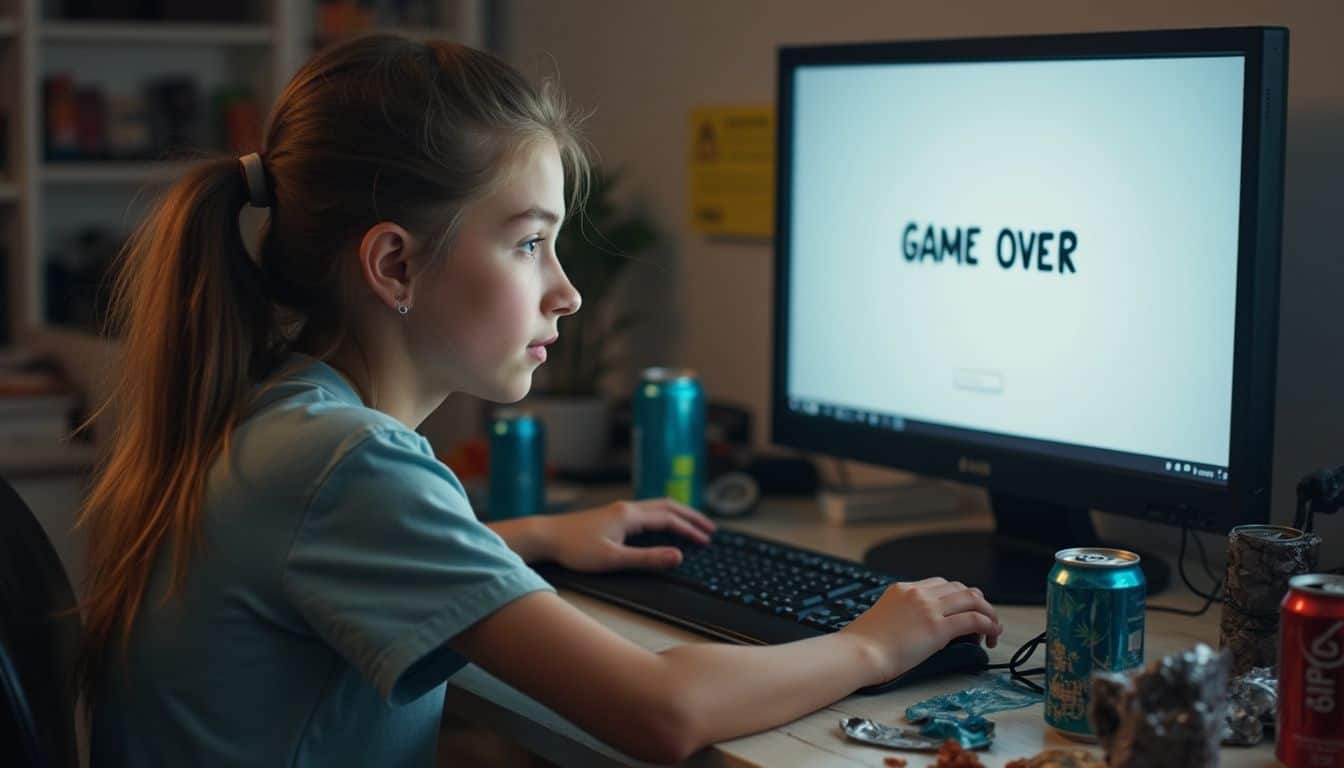
Heavy play can backfire if you ignore limits. Risks include gaming disorder, mental health issues, and trouble with school or work. Learn the warning signs and set guardrails before problems grow.
What are the risks of gaming addiction?
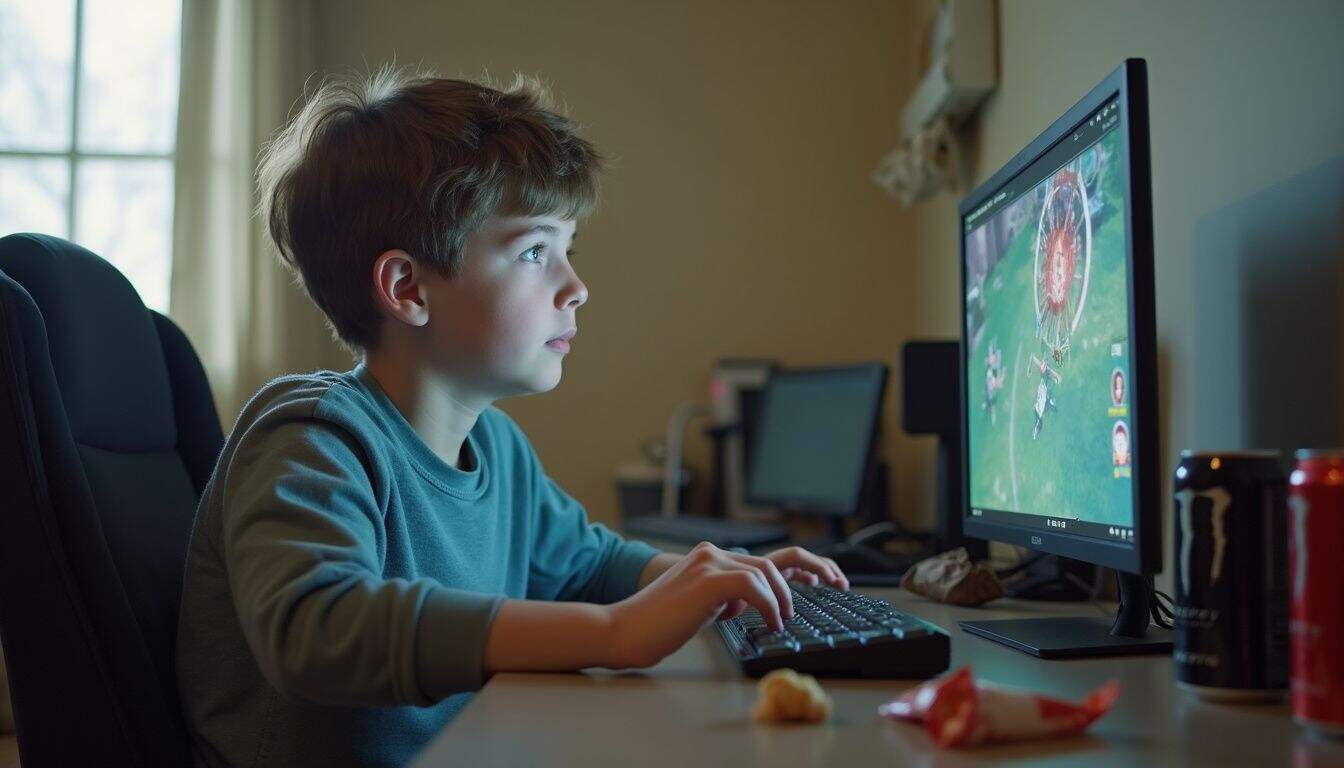
Persistent play can tip into video game addiction for some. Global estimates suggest about 4.7 percent have internet gaming disorder. Among ages 8 to 18, around 8.5 percent may meet criteria for addiction.
Common signs include lost interest in other activities, skipped meals, poor sleep, and neglect of hygiene. Some withdraw from friends and family. Anxiety and low mood can appear when play is blocked.
Work and school may suffer too. The World Health Organization recognizes gaming disorder because the impact on health and daily life can be serious.
I skipped classes for days trying to beat a boss fight, my friend said after his parents realized he was barely eating.
If these patterns show up, talk with a licensed clinician or counselor. Help is available, and early support makes change easier.
Can gaming increase aggression in some cases?
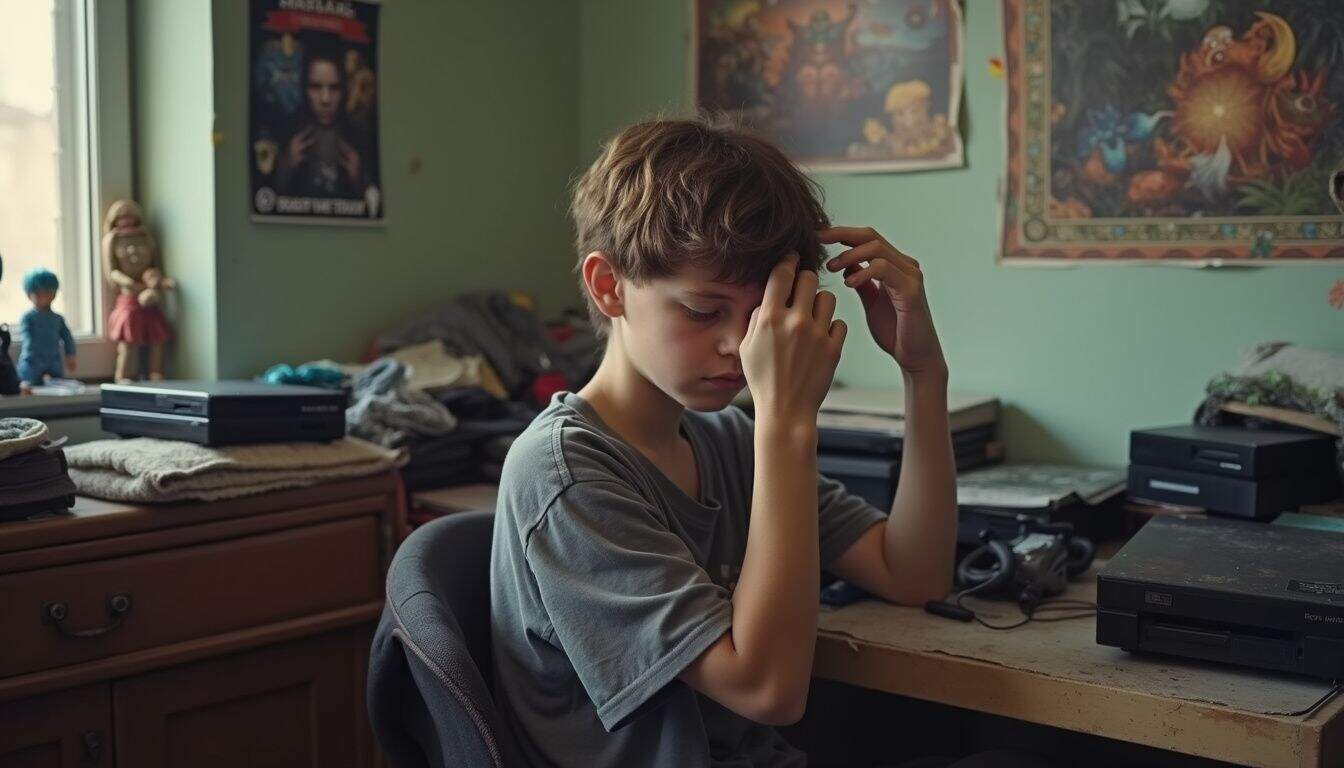
Some research shows a small link between violent video games and aggressive behavior. The American Psychological Association reported this pattern in 2020. About 56 percent of teens say they play violent titles.
Kids already prone to anger may feel more irritable after certain games. Debates grew after tragic events in El Paso and Dayton, yet evidence does not tie games to mass shootings. Legal cases, like Brown v. Entertainment Merchants Association, also raised First Amendment questions.
Use ESRB ratings to understand content and maturity levels. The World Health Organization tracks gaming disorder when compulsive play harms health or relationships. For anyone at risk, active monitoring and clear limits are key.
How does gaming lead to avoidance of real-world responsibilities?

Spending 30 or more hours weekly on games often crowds out tasks. Skipped classes and late homework lead to lower academic performance and a drop in CGPA. Instant rewards from games can make real projects feel dull by comparison.
Health issues like eye strain and less movement add new problems. Many students, especially males, report video game addiction patterns during heavy play periods. The result is missed duties at home and school.
What is gambling-like behavior in gaming?

Loot boxes and other in-app purchases can act like gambling. You pay for a chance at a random item, not a guaranteed reward. That uncertainty keeps some players buying, hoping for a win.
Studies show males often score higher on both gaming disorder and gambling addiction measures. A 2022 study linked early gaming problems to later compulsive spending and gambling risks.
Kids face extra risk if games allow easy purchases without approval. Families should lock down permissions and talk openly about money choices.
How does gaming affect physical health?

Long sessions can strain your neck, back, and wrists. I have felt wrist pain after long competitive nights, and many players report the same. The American Academy of Pediatrics warns that too much sitting raises risks for weight gain and heart issues.
Staring at screens can cause digital eye strain with dryness and irritation. Late-night play disrupts sleep, then fatigue hits school and work. Younger players who miss active playtime may limit healthy brain and body development.
What mental health issues are linked to gaming, such as anxiety and depression?
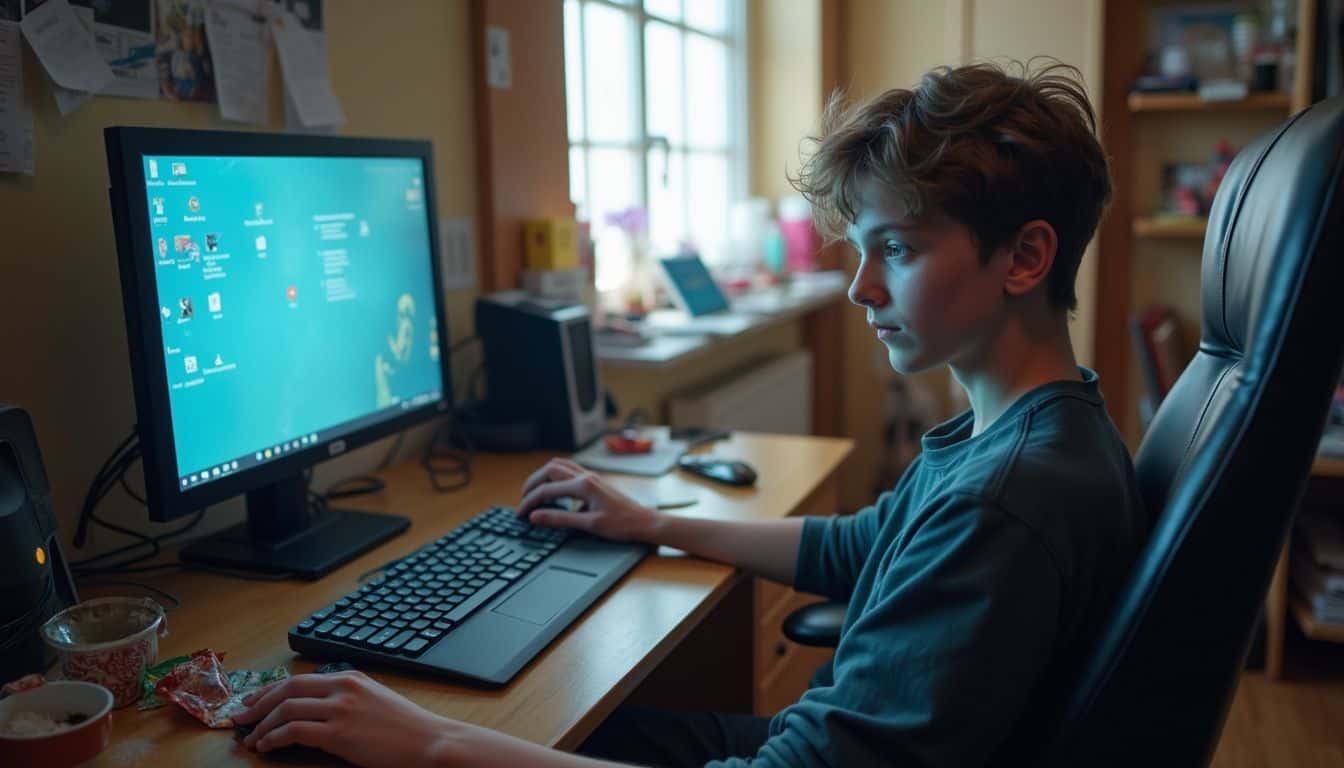
Excessive play can fuel negative mental health outcomes like anxiety, low mood, and poor sleep. Internet Gaming Disorder, or IGD, describes compulsive gaming that reduces control and creates cravings. The World Health Organization recognizes it.
People with IGD may feel irritable when they cannot play. Some use games to escape stress, which delays real problem-solving. That cycle can hurt relationships and school performance.
If you notice ongoing sadness, anxiety, or sleep trouble, reach out to a licensed therapist or your doctor. This content is for education only and is not medical advice. Care from a professional can help you build healthier habits.
How can gaming reduce focus and concentration?
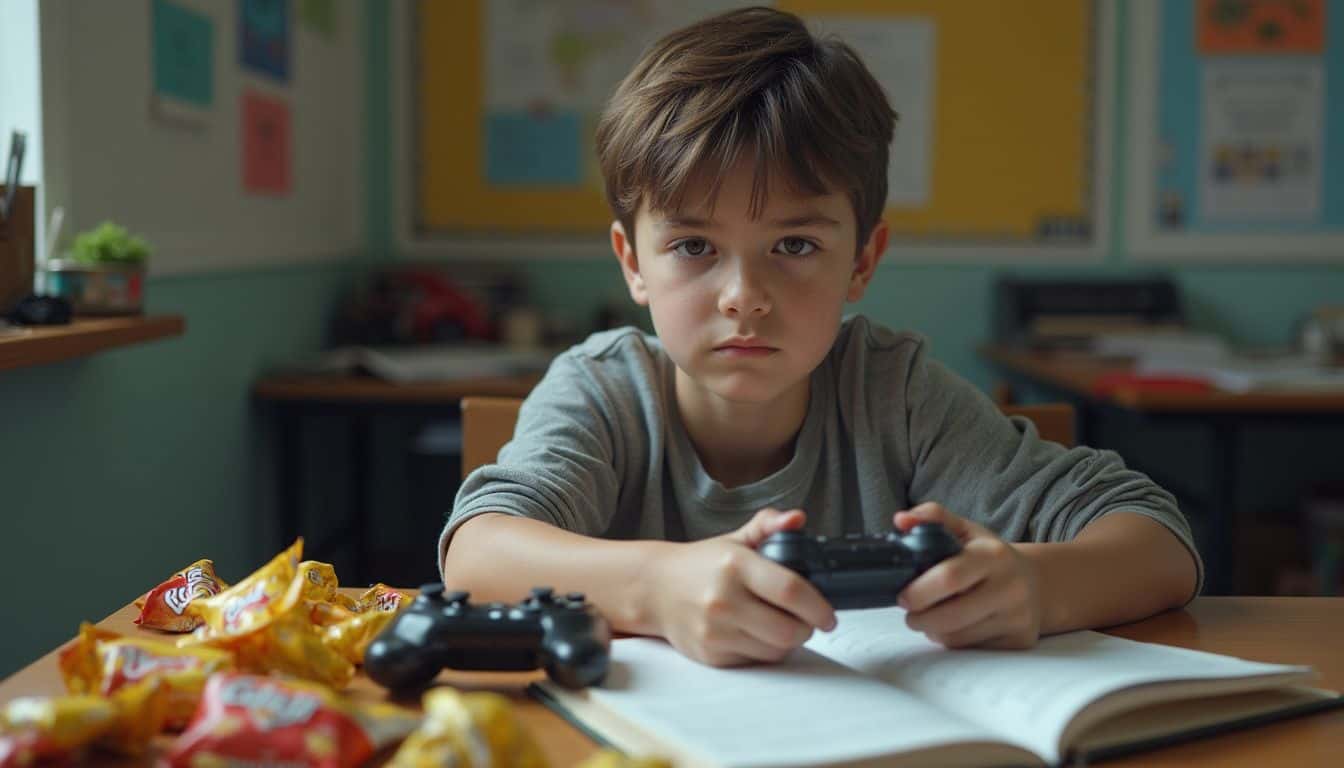
Late-night sessions reduce attention the next day. Grades can fall when study time gets replaced by long play. Some students skip class, then scramble to catch up and lose motivation.
High screen time also raises headaches, eye strain, dizziness, anxiety, and depression. These issues make focusing much harder. Balancing play with clear limits protects your mind and your goals.
Balancing Gaming in Daily Life

Clear limits reduce the risk of gaming disorder and burnout. Choosing games that build cognitive functions or teamwork keeps the hobby positive. Small changes add up fast.
How can you set effective time limits for gaming?

It is easy to lose track of time while playing. Use simple guardrails to keep control and protect your health.
- Set timers on your phone or smart speaker. Take a short break when it buzzes.
- Build a gaming schedule during busy weeks, like exams, and stick to it.
- Play with friends who respect limits so breaks actually happen.
- Tell family or roommates your planned gaming hours for accountability.
- Stop screens 1 to 2 hours before bed to improve sleep quality.
- Use app-based controls or Steam’s Family View to lock games after set periods.
- Do stretches or a few squats between matches to add movement.
- Check weekly screen time data and adjust if numbers creep up.
How do you choose games with positive benefits?
Time limits help. Smart game choices make that time work for you, not against you.
- Check ESRB ratings before you play. Ratings help filter out violence or sexually explicit content.
- Pick puzzle and strategy games like Portal 2 or Chess Ultra for thinking practice.
- Choose co-op and team titles that build social skills, such as Overwatch or Rocket League.
- Use fast games that train hand-to-eye coordination and peripheral vision, like rhythm or sim titles.
- Avoid games centered on loot boxes or aggressive in-app purchases.
- Go for creative sandbox games like Minecraft to grow exploration and critical thinking.
- Limit violent video games if you notice more irritability after playing them.
- Use platform tools for parental controls, screen tracking, and content filters.
Years of play taught me that strategy games improved my decision-making. I also saw friends struggle when they ignored warning signs of compulsive use. Check esrb.org before you install a new title.
What are good ways to encourage other hobbies and physical activities?
Mix in movement and offline hobbies to keep life balanced. You will feel better, and games will stay fun.
- Set timers to limit sessions and prompt movement breaks.
- Try active video games, such as dance or sports, to sneak in exercise.
- Schedule weekly meetups for board games, tabletop RPGs, or group sports.
- Start a creative project like music, 3D art, or modeling, using your game-born focus.
- Join fitness challenges or gyms that mix workouts with game-like goals.
- Find clubs that match shared interests, like coding or science groups.
- Volunteer locally to tackle real problems and build empathy.
Small steps create a more rounded routine. You will protect mental health and still enjoy your favorite titles.
How Will Gaming’s Impact on Our Lives Evolve in 2025?
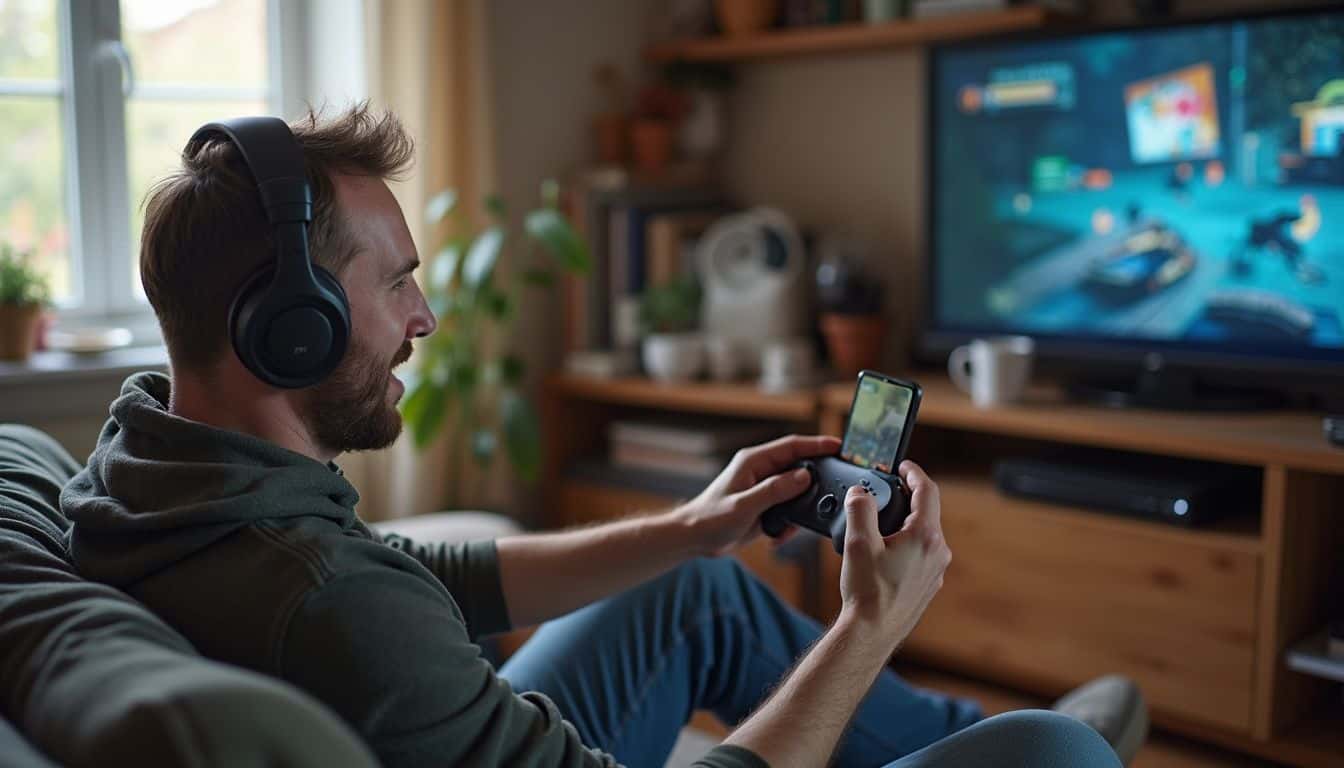
By 2025, online play will touch school, work, and home life even more. Many people will use video games to sharpen cognitive functions like memory, logic, and problem-solving. Multiplayer tools will keep growing friendships and communication skills.
Some will also use gaming as a mental health aid for stress, with better guardrails built into platforms. Expect more features that nudge movement and breaks to reduce eye strain and long sitting.
Healthy habits matter most. Set time limits, pick helpful genres, and watch for early signs of gaming disorder or video game addiction. Balanced play gives you the best parts of gaming while protecting your well-being.
People Also Ask
What are the main benefits of playing video games?
Video games can improve cognitive functions, boost hand-to-eye coordination, and enhance peripheral vision. Fast-paced games may also help with decision-making skills and increase gray matter in the brain.
How does screen time from gaming affect mental health?
Excessive screen time can lead to eye strain and may contribute to mental health issues such as social anxiety or gaming disorder. The World Health Organization recognizes video game addiction as a real concern.
Are violent video games linked to aggressive behavior?
Studies on violence in video games show mixed results; some research suggests a link between violent behavior and exposure to violent content, while others point out that factors like child development play a larger role.
Can playing video games have medical or educational benefits?
Yes, certain types of gameplay have been shown to aid laparoscopic surgery training by improving precision and reaction times. Video game use can also support learning through problem-solving challenges.
What risks come with loot boxes and in-app purchases in gaming?
Loot boxes and other forms of in-app purchases can encourage compulsive spending behaviors similar to gambling problems; these features raise concerns about addiction among young players.
How do experts recommend managing potential negative effects of gaming?
The American Academy of Pediatrics advises setting limits on screen time for children, monitoring for signs of gaming disorder or social withdrawal, and seeking professional help if symptoms like compulsion or real-world problems appear.
References
https://gamequitters.com/pros-and-cons-of-video-games/
https://pmc.ncbi.nlm.nih.gov/articles/PMC8870796/
https://pubmed.ncbi.nlm.nih.gov/6622153/
https://health.clevelandclinic.org/are-video-games-good-for-you
https://internationalschooling.org/blog/video-gaming-pros-and-cons (2021-06-22)
https://pmc.ncbi.nlm.nih.gov/articles/PMC9047596/
https://pmc.ncbi.nlm.nih.gov/articles/PMC10796710/
https://myweb.fsu.edu/vshute/pdf/rahimi_shute.pdf
https://pmc.ncbi.nlm.nih.gov/articles/PMC10065366/
https://www.britannica.com/procon/video-games-debate
https://pmc.ncbi.nlm.nih.gov/articles/PMC10723781/
https://pmc.ncbi.nlm.nih.gov/articles/PMC6517345/
https://www.wellpower.org/blog/the-surprising-truth-about-video-games-and-mental-health/
https://ditchthelabel.org/7-ways-to-find-a-healthy-gaming-life-balance
https://pmc.ncbi.nlm.nih.gov/articles/PMC4688462/
https://pmc.ncbi.nlm.nih.gov/articles/PMC4770851/
https://vocal.media/gamers/5-benefits-of-playing-online-games-2025-update-for-gamers (2025-08-11)
